A seminar jointly organised by the Institute for Local Governance and Council for Local Authorities for International Relations (CLAIR) will take place at Teikyo University, Durham, Friday 10th July, 2015, 9.30 – 1.00.
Details of the seminar can be found here.
In 2013, construction of a major new manufacturing plant began in Newton Aycliffe, County Durham, giving an immediate initial boost to the local labour market. The new train manufacturing plant will be handed over to Hitachi in September, and in the months that follow 700 new jobs will come to the area.
Hitachi’s arrival represents just one amongst many welcome journeys that Japanese companies have made to North East England, including Nissan, Nifco, Komatsu and NSK Bearings, amongst many others. These companies, alongside the supply chains they have built with UK companies, play a major role in providing an economic boost to the region.
Undoubtedly, the North East wants Japanese companies to stay here and would welcome more if they choose to come our way. But what, precisely, do we have on offer to encourage this to happen? Has the North East gone the extra mile fully to welcome such investment? But perhaps most importantly of all, what are we learning from the companies that have come to the region and how well is the region responding to the massive economic contribution they make in business terms?
This seminar looks at the contribution Japanese business has made to the enterprise culture in North East England. But the debate should not be an historical one. What we need to ask is what can be done to build stronger links with existing and new companies? The conference also aims to think about ways to increase levels of enterprising activity in the region in the localities where major new Japanese firms are operating and identify reasons why such opportunities might be grasped, missed or stifled.
This conference provides an opportunity to tackle such questions in a constructive way from many different standpoints in order to inform policy makers and industrialists in the region about the contribution of Japanese inward investment to the local economy. The conference will be opened by Professor Ray Hudson, Vice Chancellor of Durham University and will be closed by Professor Masao Imaseki, Principal of Teikyo University, Durham.
To lead the debate, a number of speakers have agreed to present their ideas and talk about their experiences.
- Phil Wilson, Member of Parliament for Sedgefield, County Durham
- David Coppock & Tasleem Baqir, North East Region, UKTI
- Simon Goon, Managing Director, Business Durham
- Kazuya Shima, Director, Japan Local Government Centre (CLAIR London)
- Andrew Stevens, Chief Researcher, Japan Local Government Centre (CLAIR London)
- Professor Tony Chapman, St Chad’s College, Durham University
The seminar will also provide an opportunity to network with industrialists in key Japanese firms in the region, including the new Hitachi plant in Newton Aycliffe.
The seminar is free to attend. Please register your attendance via: Janet Atkinson, Institute for Local Governance, Durham University janet.atkinson@durham.ac.uk. Please note that we have limited places for this seminar so allocation will be made on a first-come first-served basis.
The Institute for Local Governance is a North East Research and Knowledge Exchange Partnership established in 2009 comprising the regions Universities, Local Authorities, Police and Fire and Rescue Services. Further information about the content of the event can be obtained by contacting:-


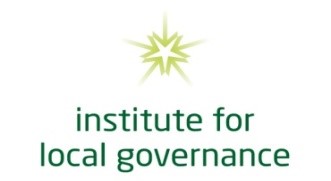

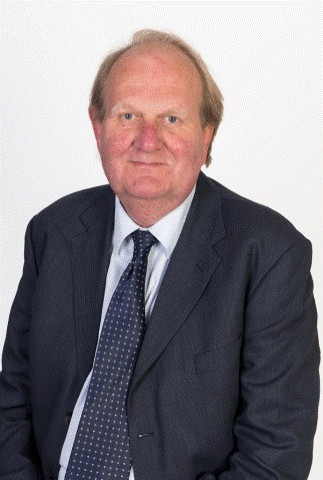
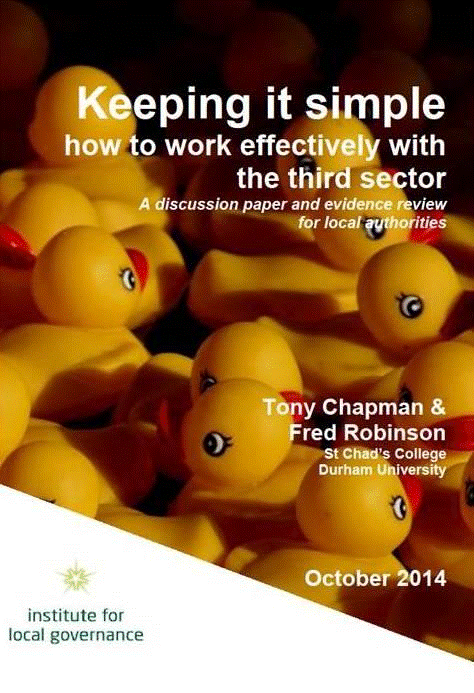
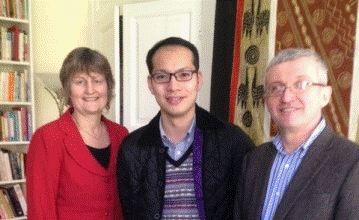
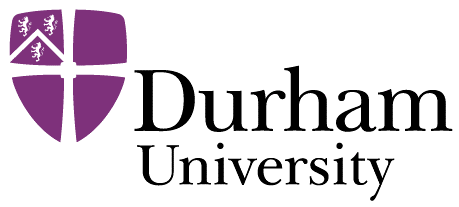
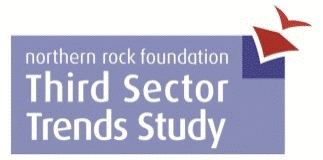 There’s been tremendous speculation over the last few years about the level of demand for loans in the third sector. What is happening on the ground has been clouded, to some extent, by a current preoccupation with ‘social investment’ as opposed to borrowing in general. Government enthusiasm for social investment is reflected in its establishment of Big Society Capital in April 2012, a wholesale lender, which provides capital for financial intermediaries to allocate to TSOs. There are now many financial institutions which serve the third sector marketplace including: Charity Bank, The Keyfund, CAF Venturesome, Social Finance, amongst others.
There’s been tremendous speculation over the last few years about the level of demand for loans in the third sector. What is happening on the ground has been clouded, to some extent, by a current preoccupation with ‘social investment’ as opposed to borrowing in general. Government enthusiasm for social investment is reflected in its establishment of Big Society Capital in April 2012, a wholesale lender, which provides capital for financial intermediaries to allocate to TSOs. There are now many financial institutions which serve the third sector marketplace including: Charity Bank, The Keyfund, CAF Venturesome, Social Finance, amongst others.